

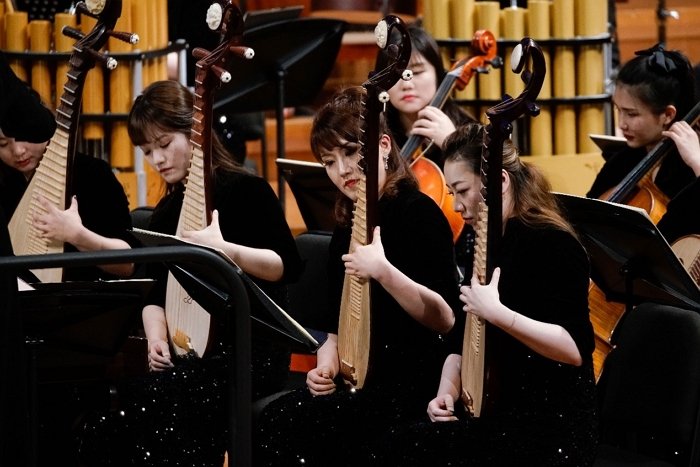
In order to celebrate the achievement of poverty alleviation, and commemorate people who dedicated to fighting against the epidemic, and also to welcome the centenary of the party founding, China Cultural Center in The Hague, in collaboration with Artall Culture Group, launches an online performance of ethnic symphony - The Classic of Mountains and Seas, The Auspicious Beast Dang Kang: Harbinger of Prosperity.
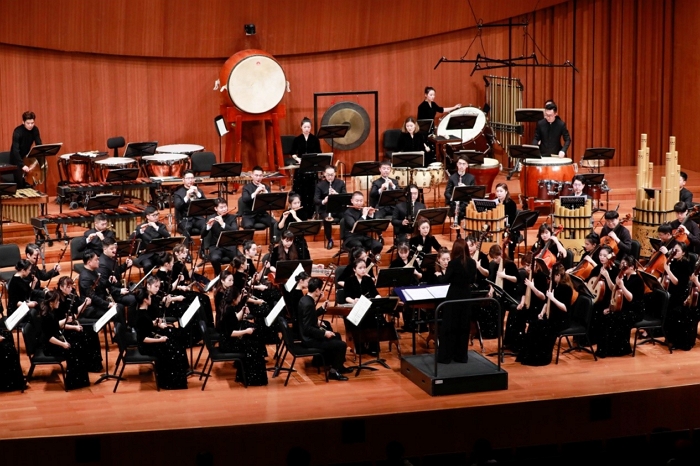
Dang Kang is the auspicious beast that represents the harvest in the ancient times recorded in The Classic of Mountains and Seas. The concert begins with the Intro "The Classic of Mountains and Seas. Dang Kang Song", divided into six movements, "Homeland", " The Archer and the Suns ", " The Foolish Old Man Who Removed the Mountains ", " Da Yu Tamed the Flood ", " The war against the epidemic ", "Leap and fly", depicts the hardship and heroic image of the Chinese in the struggle against nature and the development of human society, reflecting a spirit of a community with a shared future for mankind.
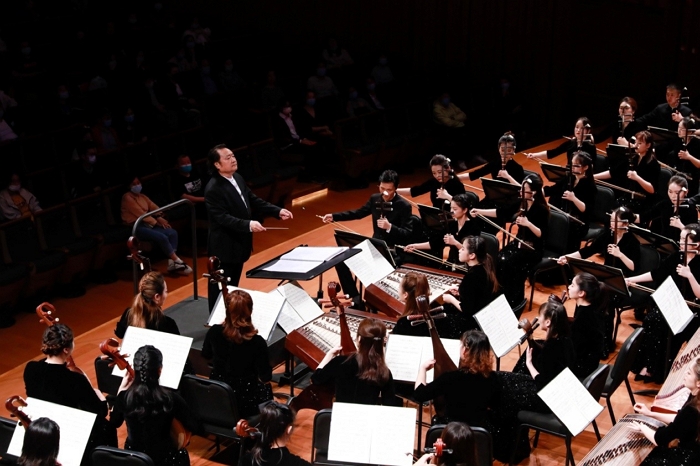
Intro: The Classic of Mountains and Seas. Dang Kang Song
Mountains’ evocation, seas’yearning.
Seasons’ auspicious, grains’ fragrance.
The blessing of everything, resound through the sky and earth.
The auspicious beast roar, Dang Kang Dang Kang.
Dang Kang Dang Kang, good weather for the crops.
Dang Kang Dang Kang, plentiful harvest everywhere.
Dang Kang to people, our desire for long.
Dang Kang to China, strive to be strong.
Dang Kang, also known as tooth boar, is recorded as the "auspicious beast" of ancient times in The Classic of Mountains and Seas. It resembles a wild boar with long teeth and sounds like "Dang kang". Legend has it that during the harvest years, Dang kang will appear and dance with his roar. It is not only the most closed to the theme of this work, the mascot with cultural heritage and practical significance, but also a unique image and musical symbol full of imagination, vitality and expression in the symphony.
I. Homeland
Pan Gu creates the world, sacrifices himself to the land.
Shen Nong tastes a hundred grasses, You Chao builds for residence.
Cang Jie makes words, home starts with pig feeding.
Dang Kang prays for a bumper harvest, the prosperity of China will last forever.
"Homeland" is based on The Classic of Mountains and Seas, involving the myths and legends of Pan Gu, Shen Nong, You Chao, Cang Jie, etc., showing the sense of "homeland" in the long history of the Chinese nation. It makes a concise and distinctive national, regional, romantic and realist atmosphere and environment for the development of all the movements, as well as the elements of related characters and roles, such as hardworking and brave, perseverance, wisdom, harmony, righteousness and profit, sense of responsibility on the country, and the vast land and resources with calamities and so on.
II. The Archer and the Suns
Break the python in marsh, catch the boar in forest.
The hero returns in triumph, saving people from burning in ten suns.
The archer Hou Yi, fighting in the face of danger.
Shoot nine suns down in Wojiao mountain, with the cock crowing in the east.
The Archer and the Suns" is based on the story of Hou Yi shooting the suns. In this movement, it not only explained the previous past, but also used the story of Hou Yi to reflect the long, fierce, great history of the national liberation struggle and the People's Liberation War in modern Chinese history, and the growth history of the Chinese Communist Party as the mainstay and leader of the Chinese revolution.
III. The Foolish Old Man Who Removed the Mountains
Wangwu mountain is removed with a basketry, after the foolish old man came out from Taihang mountain.
It is the octogenarian old man who writes the legend forever.
No matter how high and heavy the mountain is, ignoring the fleer of wise people.
His spirit of perseverance that moved heaven and earth, will lasts forever.
The Foolish Old Man Who Removed the Mountains is based on the story of an octogenarian who removed the mountains with a spirit of perseverance, which is the most familiar legend in all movements. The ingenious collision and fusion between Huqin, Pipa and drums, and the melody of strength in softness, linger on the mind for a long time. In every note, it is the confidence and perseverance of the hard working Chinese in ancient China.
IV. Da Yu Tamed the Flood
Leave his wife after four days of marriage, with his back towards his house gate.
Thirteen years of water-control, spade is the tool to serve the interests of all the people
The credit goes to Gun's descendants; benefit goes to all the people.
When you think of Da Yu, you will think of his spirit.
Da Yu Tamed the Flood is based on the story of Da Yu. This music focused on Da Yu's heroic image and public servant style. Da Yu worked hard and lived frugally. Later, he became a true hero of the people because of his guidance. He is an example of "Remain true to our original aspiration and keep our mission firmly in mind." During the performance, the melody played by the ancient national musical instrument Guyu (about 9000 years ago), Xun (about 6000 years ago) and panpipes (about 3000 years ago) shows the audience the story of Da Yu.
V. The war against the epidemic
The cowherd used to be a common boy, Nor the Girl weaver a shining star.
A virus can be so dangerous, By changing villages to deserted places.
The new era sees many happy events, Including our sending away the God of plague.
We write our psalm at the West Lake, The spring breeze will bring us a bright future.
“Saying Good-bye to the God of Disease”by Mao Zedong
Thousands of willow branches in a spring wind.
Six hundred million of China, land of the gods, and exemplary like the emperors Shun and Yao.
A scarlet rain of peach blossoms turned into waves and emerald mountains into bridges.
Summits touch the sky.
We dig with silver shovels
and iron arms shake the earth and the Three Rivers.
God of plagues, where are you going?
We burn paper boats and bright candles to light his way to heaven.
"The war against the epidemic" is based on Mao Zedong's poem " Saying Good-bye to the God of Disease(2) ", combined with the background of poetry creation and the character stories, myths and legends and folk customs in Chinese classics, vividly reflecting the realistic theme of today's epidemic, and eulogizing the great struggle under the leadership of the party, with the thought of people first and lives first. In this movement, it contains not only the romantic spirit and the legend of China, but also a strong discussion of realistic themes, scientific attitudes and cosmological views. The form of recitation is increased, and the romantic spirit and the strong reality are vividly integrated. It is the highest emotional poetry of the whole symphony, and won the resonance of the audience.
VI. Leap and fly
Despite of being a small bamboo-copter,
It can compete with the sky lantern up high.
To the sky, the goddess of Apsaras flies,
On the land, people are dear to each other.
As amazing as the Long March,
We invite the moon as our guest.
Upon our return from the Celestial Palace,
Our heroic deeds will be celebrated.
"Leap and Fly" is based on a wide range of materials, with both the fantasy color of romanticism and the truth in real life. The vigorous music pushes the audience's thoughts to a climax. The emotion of continuous development and advancement is like the leap and development of our country.
Ending: Festivity is coming. Cheers!
Windy and sunny day, blooming and beautiful flowers
Festivity comes from the door, sunshine comes from the window.
A happily married couple, a tasty fragrant wine.
Marriage from today, love song forever.
Cheers, Cheers, Cheers.
Dang Kang, Dang Kang, Dang Kang.
Dang for cultivation, Kang for growth.
Dang for striving, Kang for prosperity.
After all the hardships, here comes the brilliant future
Resound through the world, makes the world new.
Cheers, Cheers, Cheers.
Dang Kang, Dang Kang, Dang Kang.
Mountains’ evocation, seas’yearning.
Faith can move mountains, resulting in spacious land.
Dang Kang to people, our desire for long.
Dang Kang to China, strive to be strong.
Cheers, Cheers, Cheers.
Dang Kang, Dang Kang, Dang Kang
Main creator introduction
Literary writer Feng Yitong
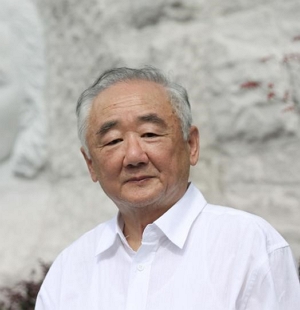
Born in Baoying, Jiangsu in 1941, a poet, a national first-class writer, consultant of the Chinese Poetics Research Association of Jiangsu Province, and author of the "Declaration of Peace" in the Shijing poetry style of the National Memorial Ceremony in 2014. His works have won the Nanjing Literature Award, the Zijinshan Literature Award, and the provincial and municipal "Five Ones" project awards.
Composer Yang Yibo
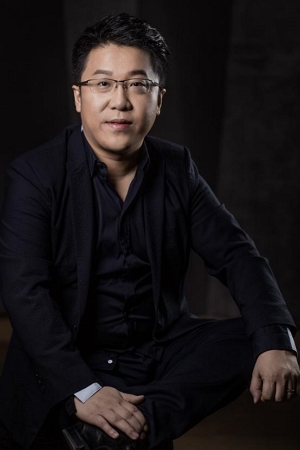
Young composer, PhD, music producer of China National Opera and Dance Theater.The first PhD student of Mr. Zhao Jiping in composition, a member of the Chinese Music Association, a member of the Creative Committee of the Chinese National Orchestral Society, a director of the Chinese Music and Literature Society, a winner of the “FiveOnes”projectaward of the Central Propaganda Department, a winner of the “National Art Fund”, CCTV Music director of "My Art List" , guest of CCTV "Music Public Class" , judge of Kugou theme original song contest.
Composer Chen Siang
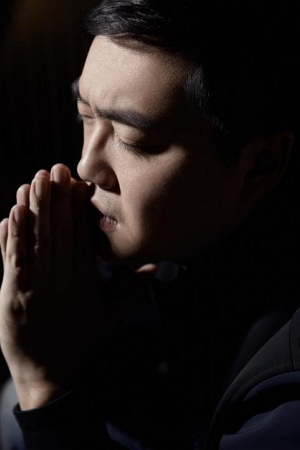
Young composer, associate professor of the Composition Department of Xinghai Conservatory of Music, graduated from the Central Conservatory of Music, under the tutelage of the famous composer Professor Tang Jianpin. In 2016, he won the honorary title of “Top Ten Young Music Talents in Guangdong Province. In 2017, he won the National Art Fund Young Creative Talent Award. In 2018, he was selected as "Guangdong Province Youth Cultural Talent". In 2019, he was selected as a "Propaganda and Ideological Youth Cultural Talent" by the Propaganda Department.
Composer Kong Zhixuan
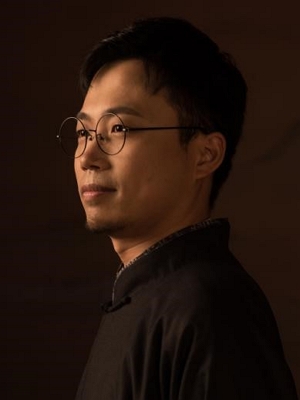
A native of Yangzhou, Jiangsu, PhD in composition, lecturer at the Conservatory of Soochow University, member of the Composition Committee of the Chinese National Orchestral Society, graduated from the Shanghai Conservatory of Music, under the tutelage of Professor Wang Jianmin.
Conductor Zhang Lie
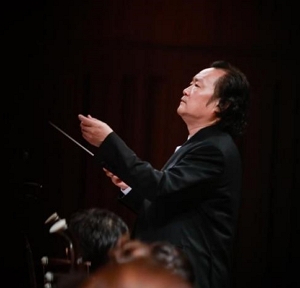
Music Director and Chief Conductor of Nanjing Chinese Orchestra, National First-Class Conductor, outstanding Conductor of Chinese National Orchestra (Top Ten).Member of the Chinese Musicians Association, executive director of the Chinese National Orchestral Society, vice chairman of the Chinese Conducting Professional Committee, and permanent conductor of the China Radio Film Symphony Orchestra and China broadcasts National Music Orchestra.
Conductor Dai Yin
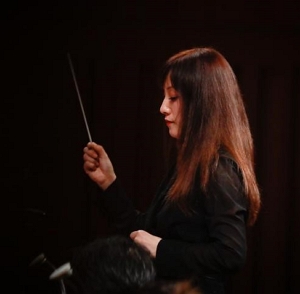
The head of the Nanjing Chinese Orchestra and the permanent conductor of the Orchestra, a national first-level conductor, a member of the Chinese Musicians Association, and the executive chairman of the Nanjing Musicians Association.


The “Beautiful Hebei” Hebei Culture and Tourism (The Netherlands) Exhibition and Exchange Event
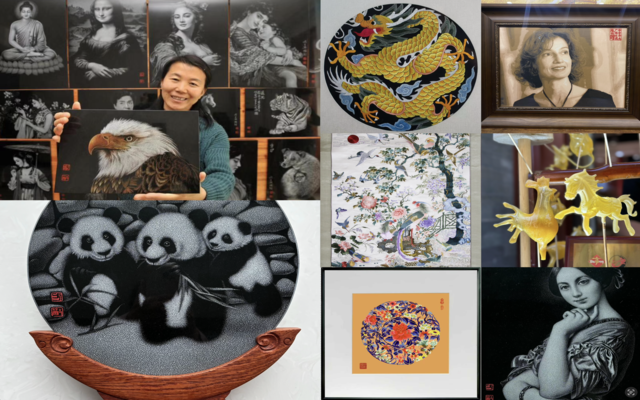
Supported by the China National Arts Fund, the International Touring Exhibition of Contemporary Chinese Paper-Based Art will be held from October 10 t...
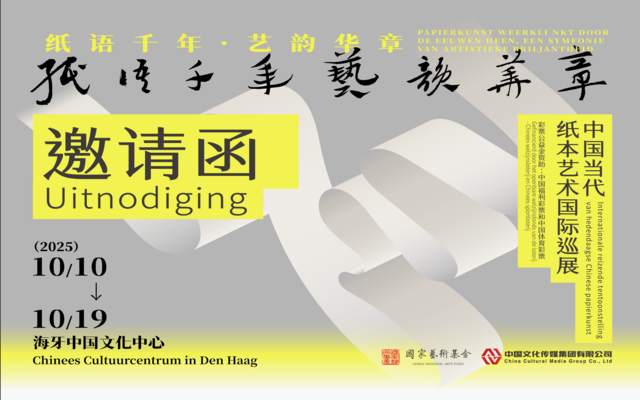
The China Cultural Center in The Hague warmly invites you to the opening of our upcoming exhibition
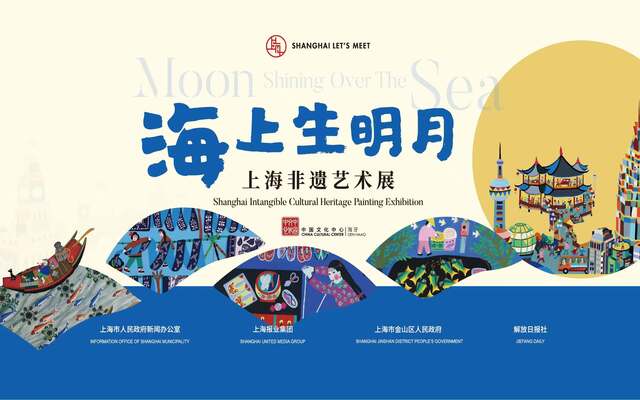
© 2023 China Cultural Center in Den Haag | Privacy policy